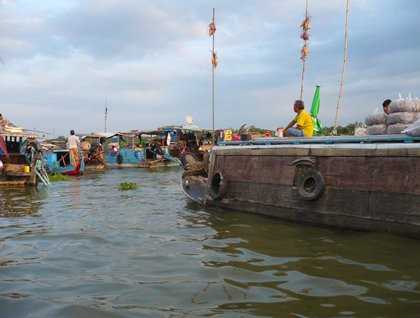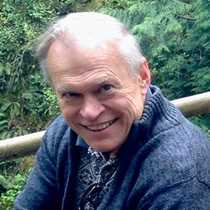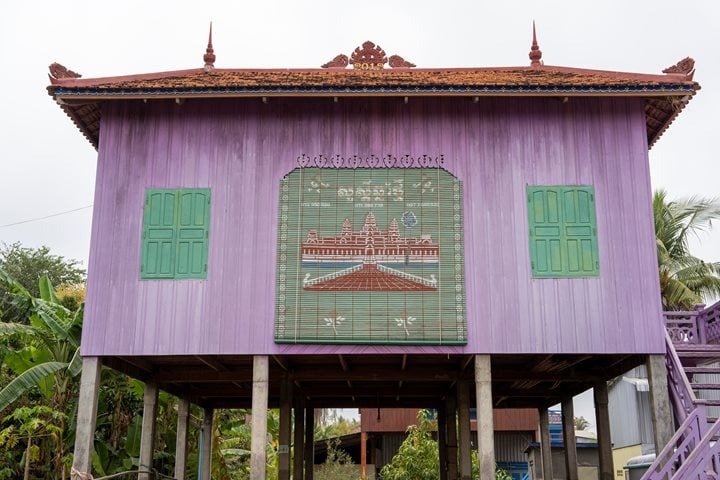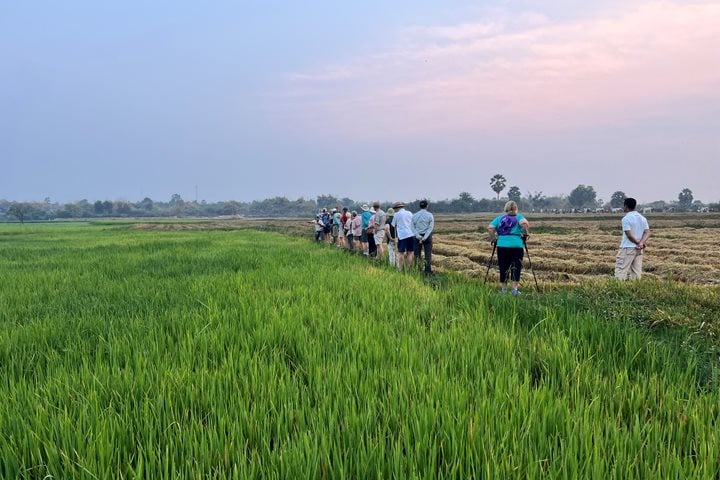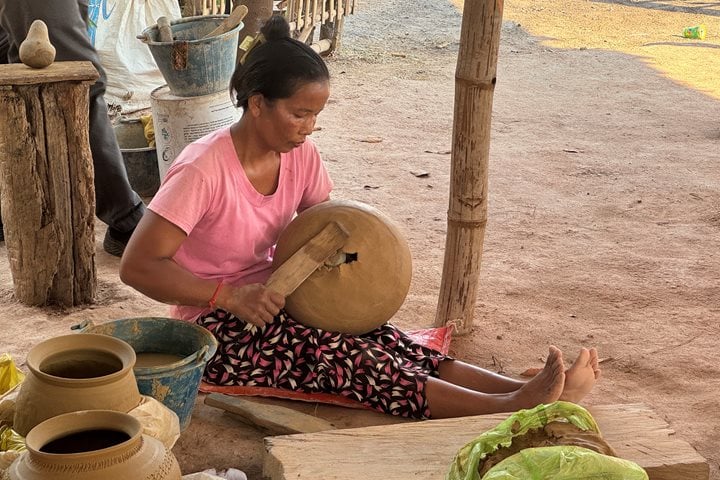To escape the heat, we leave the Jahan bright and early at 6:30 a.m. We are split in two groups and board two covered water taxis to visit a floating market where numerous boats have come together to sell their products of fruits and vegetables. We see how the people with their children and dogs adjust to life on a boat. Later we are taken by our water taxis to see one of the hundreds of nearby floating fish farms, some holding up to 70,000 fish, which will go into a frenzy at feeding time. If they meet the standards, the fish will be processed, frozen and exported to the U.S., Canada, and Europe. These farm constitute a major investment: the producers must first procure fingerlings, then purchase the expensive nutritious feed pellets (sometimes as much as $200-400 per day), and pay the overhead for their floating farms. If the fish price is good at harvest time, then the payoff can support a family very comfortably.
After seeing the fish farm, we visited the fascinating fishing town of Chau Doc. Riding on the local trishaws (oddly-configured cyclos), we take a circle tour of the market area and arrive at the local temple honoring heroes of the community. Then we take a casual stroll through the marketplace, admiring the colourful display of local fruits and vegetables. The crowded market is practical and sells everything from fishing equipment, seeds, and natural medicines to school supplies and things of everyday needs like brooms and pottery.
Later we are taken by our water taxis back to the Jahan for a late breakfast. At 11 a.m. we hear Barry Till’s lecture entitled “The Mighty Mekong,” which focused on the problems that the Mekong will undoubtedly face in the future. We have a nice lunch at 1 p.m. and a short rest while we cross the border into Cambodia. At 3 p.m. Gordon Longmuir gave a talk entitled “Indochine” presenting an overview of 150 years of Western Occupation as well as his personal experiences as a diplomat in the 1960s. At 6:30 we listen to what will happen the next day and have a short talk from Barry Till on the Phnom Penh National Museum and the looting that has occurred in the last few decades, surprisingly a number have shown up in well-known American Museums. Gordon then talks about Tabatha, an organization set up to help Cambodia. It will be offered as an alternative to the Killing Fields the next day. Max also gives a short talk on photography.

